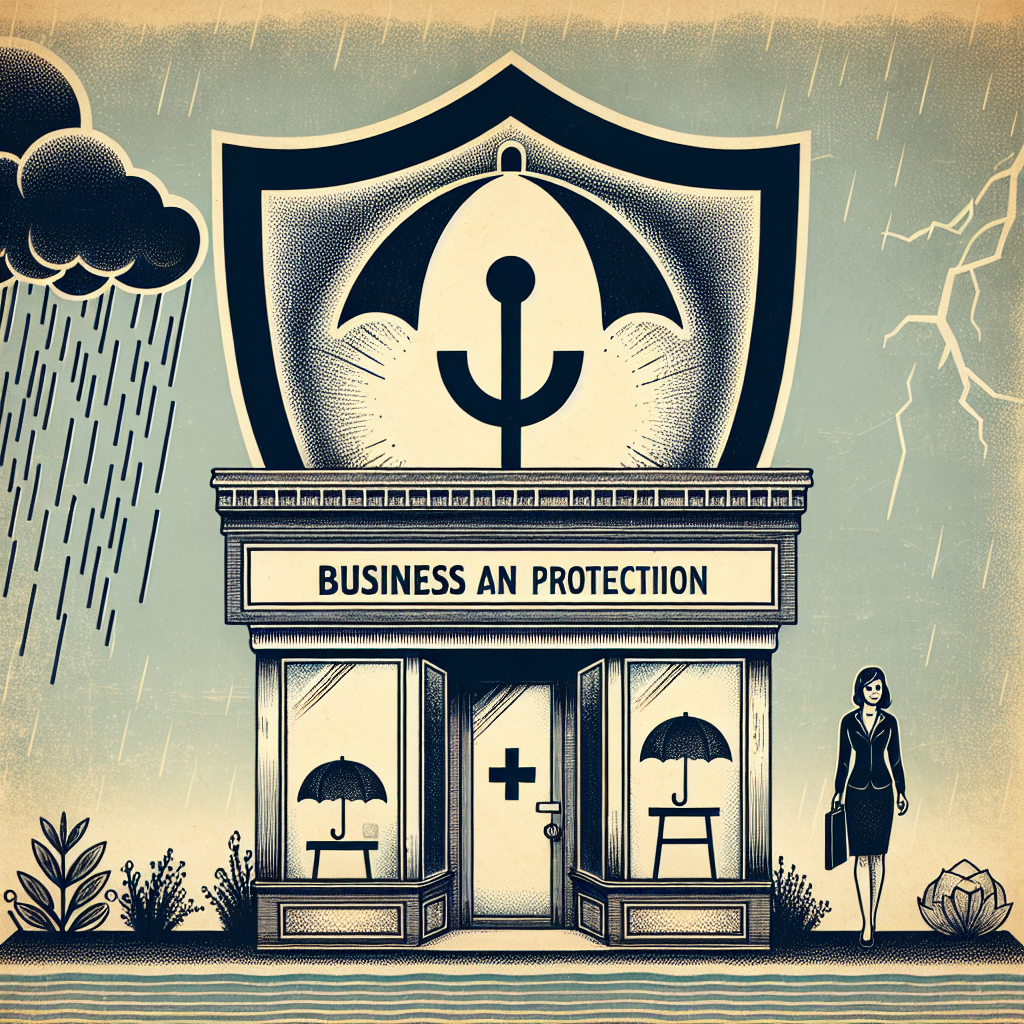Filed under Business Insurance on
Minnesota Small Business Insurance: Essential Guide

Running a small business in Minnesota comes with its fair share of opportunities and challenges. Among the crucial elements that every entrepreneur must consider is securing the right insurance. Navigating the world of business insurance can seem overwhelming, but with the right guidance, you can easily find coverage that protects your investment and sets you up for success. In this essential guide to Minnesota small business insurance, we'll explore the types of insurance available, highlight their importance, and offer tips for selecting the best policies for your business needs. Whether you're a startup or an established enterprise, this information will help safeguard your business effectively.
Understanding Small Business Insurance
Before delving into the specifics, it's important to understand what small business insurance entails. Essentially, small business insurance is a collection of policies that protect your company from various risks, including liability, property damage, and employee-related issues. The right insurance plan can help insure your business against unforeseen events that could otherwise lead to significant financial loss.
Types of Business Insurance in Minnesota
Minnesota offers a plethora of insurance options tailored to meet the diverse needs of small businesses. Here's a breakdown of the most common types:
1. General Liability Insurance
General liability insurance is a foundational policy for any small business. It covers legal costs and damages if your business is sued for causing injury or property damage. This insurance is vital because accidents happen when least expected, and liability claims can be costly.
2. Property Insurance
Property insurance protects the physical assets of your business, such as your building, equipment, and inventory. In Minnesota, where natural disasters like floods and winter storms are not uncommon, having property insurance can prevent financial devastation in the event of catastrophic damage.
3. Workers' Compensation Insurance
In Minnesota, workers' compensation insurance is mandatory for most businesses with employees. This insurance provides medical and wage benefits to employees who are injured or become ill due to their job. It is essential not only because it complies with state laws, but it also demonstrates that you care about your employees' well-being.
4. Business Interruption Insurance
Business interruption insurance is critical for maintaining financial stability if your business operations are halted due to circumstances like natural disasters or other disruptions covered under your policy. This coverage can help replace lost income and pay for ongoing expenses, such as rent and salaries, during the recovery period.
5. Professional Liability Insurance
Also known as errors and omissions insurance, professional liability insurance is important for businesses that provide professional services or advice. It covers legal costs and damages associated with claims of negligence or incomplete work. For service-oriented businesses, this insurance can be invaluable.
6. Cyber Liability Insurance
With the increasing reliance on digital operations, cyber liability insurance has become crucial for small businesses. This policy offers protection against data breaches and cyberattacks, covering costs such as notification expenses, legal fees, and regulatory fines. In a world where data breaches are becoming more common, cyber liability insurance provides much-needed peace of mind.
Why Small Businesses Need Insurance
While some business owners may view insurance as an additional expense, it is a necessary investment for several compelling reasons:
- Legal Requirement: Certain types of insurance, like workers' compensation, are legally required for businesses in Minnesota.
- Financial Security: Insurance provides a safety net that can protect your assets and help ensure your business can recover from unexpected events.
- Reputation Management: Having insurance showcases your commitment to responsible business practices and can enhance your reputation among clients and partners.
- Peace of Mind: Knowing that your business is protected allows you to focus on growth and innovation without constant worry about potential setbacks.
Factors to Consider When Choosing Business Insurance
Selecting the right insurance can be a complex process. Here are some essential factors to consider to make an informed decision:
1. Business Type and Industry
The type of business you run and the industry you operate in play a significant role in determining your insurance needs. For example, a tech startup will require different coverage compared to a retail store. Understanding industry-specific risks can guide you to the right policy choices.
2. Risk Exposure
Assessing the potential risks your business faces is crucial in selecting adequate coverage. Consider both the probability and the financial impact of these risks to prioritize which policies are most urgently needed.
3. Budget
While it's important to ensure you have sufficient coverage, the cost is also an important factor. Balance your budget with coverage needs to avoid being over-insured or under-insured.
4. Policy Terms and Conditions
Don't just assume that all policies are similar. Carefully review the terms and conditions, including exclusions and coverage limits, to ensure the policy meets your business demands.
5. Insurer Reputation
Selecting a reliable insurance provider is just as important as choosing the right policy. Research and compare different insurers by looking at their track record, customer reviews, and financial stability.
Tips for Buying Small Business Insurance in Minnesota
Here are some proven strategies to streamline your search for Minnesota small business insurance:
- Work with a Knowledgeable Broker: A broker specialized in small business insurance can help navigate options and offer personalized recommendations.
- Bundle Policies: Consider combining multiple policies under a single provider to qualify for a Business Owner’s Policy (BOP), potentially reducing your overall premiums.
- Regular Reviews: As your business grows or changes, regularly review and update your insurance policies to ensure they align with your current needs.
- Build a Workplace Safety Program: By fostering a safe work environment, you may be eligible for discounts on certain types of insurance, notably workers' compensation.
Conclusion
Insurance is an inseparable part of entrepreneurial endeavors in Minnesota. Understanding the ins and outs of Minnesota small business insurance can make a significant difference in protecting your business from unexpected setbacks. By considering the types of coverage available, assessing your business needs, and taking informed steps towards purchasing the right policies, you equip yourself with the tools needed to safeguard your investment. While this essential guide offers a comprehensive overview, consulting with insurance professionals to tailor policies specific to your business's unique situation is always invaluable. With the right insurance in place, you can confidently focus on steering your business towards sustained growth and success.





